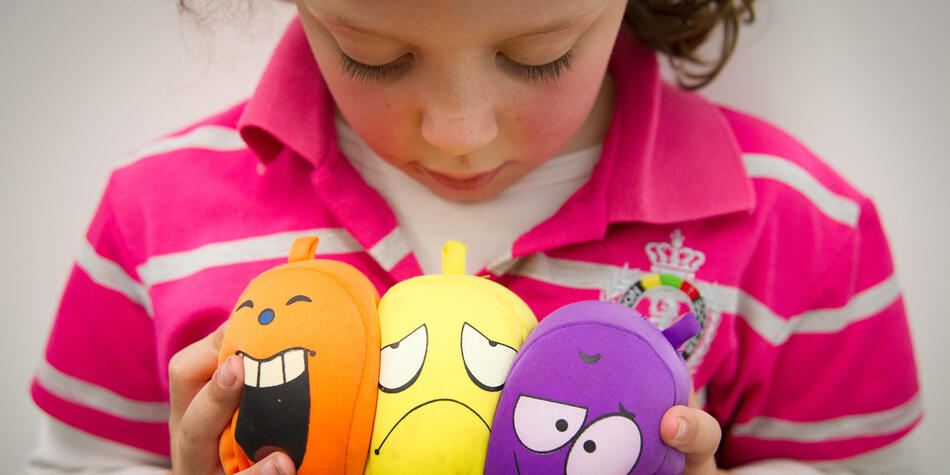As we mark the 10th anniversary of Deakin University's child play therapy courses, we reflect on the profound impact these programs have had on both the industry and the lives of countless children.
To celebrate this anniversary, we spoke with Jemma Moody-Pugh, a Deakin alumna, who shared her journey and insights into the transformative power of play therapy.
Discovering child play therapy
Jemma Moody-Pugh's journey into play therapy began with her background in social work.
'I was working as a social worker for about 10 years, primarily with refugee and migrant communities internationally. I noticed that children played everywhere, even in refugee camps and living under occupation. There was something really healing in what I saw those kiddos engaging in.'
Jemma's discovery of the play therapy course at Deakin was a turning point, leading her to pursue a career that combined her passion for working with children and families with a therapeutic approach.
Stories of transformation
Jemma shared the story about a young Afghan boy living in a refugee camp in Greece. This boy, who had been labelled as the 'naughty child' due to his expressions of anger and aggression, found a connection through play.
'We went on a school outing to an ancient aqueduct,' she tells us. 'On the way back, he just sat down and refused to move. I didn't speak Farsi, and we didn't have an interpreter with us. But I had a tape measure. I started measuring his foot and comparing it to mine, then his arm, and so on. It was playful and cheeky. His eyes lit up, and he took control, measuring things as we walked back. This playful connection was so powerful. We didn't need a shared language at all.'
This moment of connection not only helped the boy feel seen and understood but also forged a strong bond between him and Jemma. It highlights the profound impact of play in building relationships and soothing the nervous system.
Another story that stands out is about a seven-year-old girl with social anxiety who brought a favourite (but slightly unusual) toy to her first session.
'She was absolutely over the moon about her two-by-two Rubik's Cube. I showed genuine delight in her toy, which helped build our connection. She felt seen and heard, and it made her feel safe to slowly move into the playroom together.'
These stories illustrate the transformative power of play therapy in helping children express themselves and build connection and safety.
I noticed that children played everywhere, even in refugee camps and living under occupation. There was something really healing in what I saw those kiddos engaging in.
Jemma Moody-Pugh
Deakin University Play Therapy graduate
Innovation and Deakin University
Jemma's journey into play therapy was significantly shaped by her experience at Deakin University. 'The Deakin course was just so fabulous. They create a community that lives the values we practice in our clinical work,' she says. This sense of community has been crucial in her professional development and ongoing support network.
Jemma also highlights the innovative approaches taught at Deakin, such as filial play therapy, which involves training parents in therapeutic play skills. 'It's about supporting the parent to be really present with their child, to be really attuned to the child's emotional needs and internal experiences,' she explains.
This method has proven transformative, not just for the children, but for the parents as well. 'As a social worker, I know how important it is to work with the system around the child. Using filial play therapy supports this whole system. Parents finish the intervention feeling really resourced, like they understand their child better and have the tools to support them.'
What's next? The next 10 years of play therapy
As we look to the future, Jemma emphasises the growing importance of addressing trauma and the impact of climate change and war and conflict on child mental health. 'We need to be prepared for vast levels of trauma in communities, children, and families,' she notes. The systemic approach taught at Deakin, focusing on the relationship between parents and children, will be essential in meeting these challenges.
Jemma also expresses concern about the impact of technology on children's development. 'We know the impact of screens on development. It affects social skills and empathy,' she says. However, she remains hopeful about the future, believing in the resilience of children and the power of play and play therapy to help them navigate these challenges.
Deakin University's child play therapy courses have been a beacon of innovation and compassion over the past decade. As we celebrate this milestone, we invite prospective students and industry professionals to learn more about these transformative programs and join us in making a difference in the lives of children and families.
Learn more about Deakin's child play therapy courses and how they can start you on a journey of making a difference.
Ranking and footnotes
Deakin references data from a range of government, higher education and reputable media sources. For more information, visit our University rankings page.

